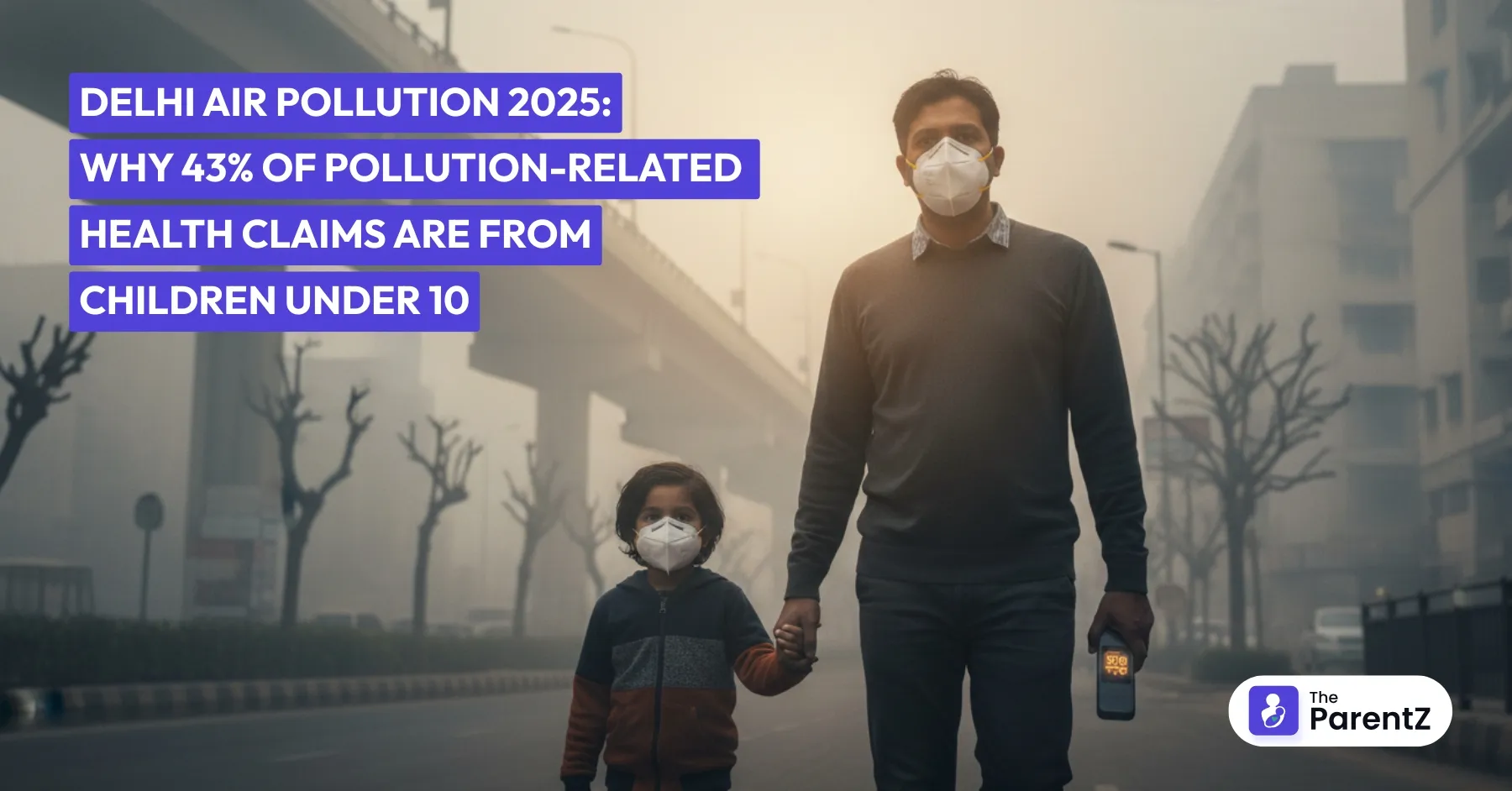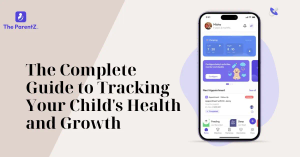Every winter, Delhi disappears behind layers of smog. We check the AQI apps, talk about stubble burning, and hope for cleaner air. But this year, the numbers tell a worrying story, especially for parents.
According to a new Policybazaar report, 43% of all pollution-linked health claims in 2025 were filed by children under 10. That means almost half of all hospitalisations due to air pollution were for our youngest ones. Kids who should be playing in parks are instead visiting doctors with coughs, wheezing, or breathing trouble.
What the Report Revealed
The study found that children are five times more affected by pollution than any other age group. Adults aged 31–40 made up only 14% of such claims, while people above 60 were just 7%.
Pollution-linked illnesses now count for 8% of all hospitalisation claims in Delhi and other big cities. On average, families spent nearly ₹55,000 per case, with hospital stays costing about ₹19,000 per day.
The problem isn’t limited to Delhi anymore. Cities like Bengaluru, Hyderabad, Pune, and even tier-2 cities like Jaipur and Lucknow are seeing rising trends. But Delhi remains the worst, accounting for 38% of all such cases among the five major metros studied.
Why Children Are More Vulnerable
Kids' lungs are still growing and developing. They breathe faster than adults and take in more air relative to their small body size. When that air is filled with harmful particles like PM2.5, nitrogen oxides, and other pollutants, their developing organs take a direct hit.
Add to this the fact that kids spend more time outdoors (on playgrounds, going to school, or travelling in open spaces), and it’s clear why their exposure level is so high.
Doctors say that polluted air doesn’t just affect the lungs. It can trigger allergies, asthma, rashes, eye irritation, sinus infections, and even heart rhythm irregularities in growing children. Over time, it can slow physical growth and reduce lung capacity.
The Post-Diwali Danger Zone
We all love Diwali lights, sweets, and celebrations, but the air that follows the festival is a different story. The report found that pollution-related health claims jump 14% just after Diwali every year. This happens when winter air becomes stagnant, fireworks fill the sky, and stubble burning intensifies.
From late October to early December, the Air Quality Index (AQI) in Delhi often moves from “moderate” to “severe.” That’s when most children develop symptoms like runny noses, sore throats, dry coughs, or constant tiredness.
For parents, this is the time to be extra careful. Keep outdoor activities minimal, track AQI levels daily, and ensure your child’s room is well-ventilated but protected with filtered air.
What This Means for Parents
This isn’t just an environmental story anymore; it’s about family health and daily life. The growing number of child hospitalisations for pollution-linked problems is a signal to rethink how we plan, protect, and prepare. Here’s what every parent can do:
- Check your health insurance cover: Make sure your family’s plan includes children’s respiratory illnesses or allows OPD claims.
- Consider seasonal care add-ons: Many insurers now offer short-term plans covering pollution-linked conditions.
- Keep indoor air clean: Use air purifiers, indoor plants, and regularly clean filters and soft furnishings that trap dust.
- Watch the AQI: Treat high-pollution days like “rainy days.” Stay indoors, especially early mornings and evenings when pollution peaks.
- Build immunity naturally: A healthy diet with fruits, vegetables, and hydration can strengthen your child’s defense system.
- Plan medical check-ups: Don’t wait for symptoms to worsen. Routine checks help spot early signs of breathing or allergy issues.
Conclusion
The Policybazaar report is more than just a set of percentages; it’s a wake-up call for all of us living in polluted cities. Children under 10 forming nearly half of all pollution-related hospital claims shows how deeply air quality affects young lives.
We may not be able to change the air overnight, but we can change how we respond to it. Awareness, prevention, and timely medical attention can make a huge difference.
So this season, while Delhi fights its smog, let’s make sure our children breathe as safely as possible; one small step, one clean corner, one mindful decision at a time.





Be the first one to comment on this story.